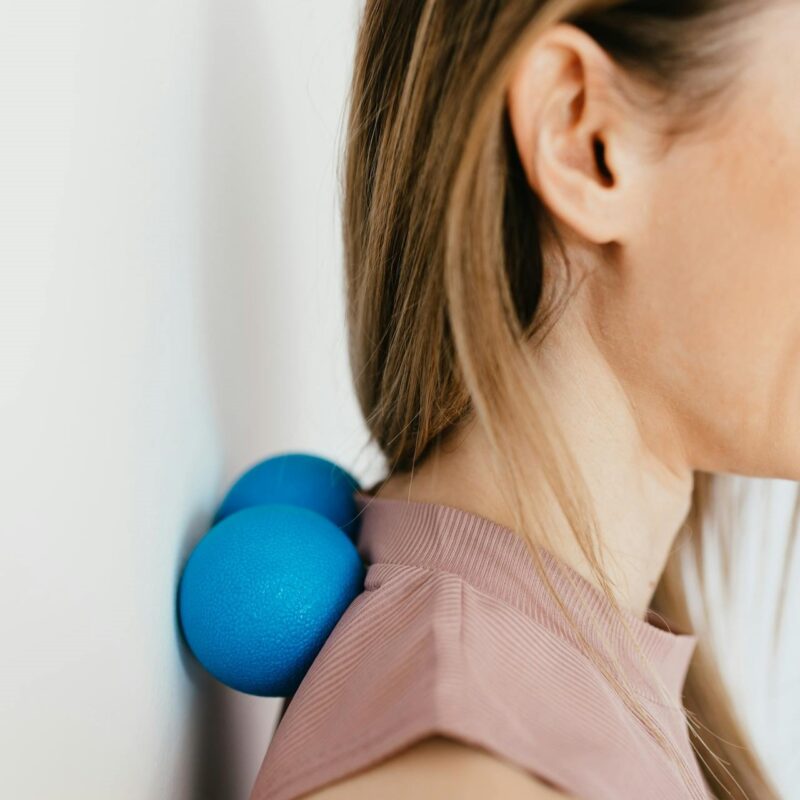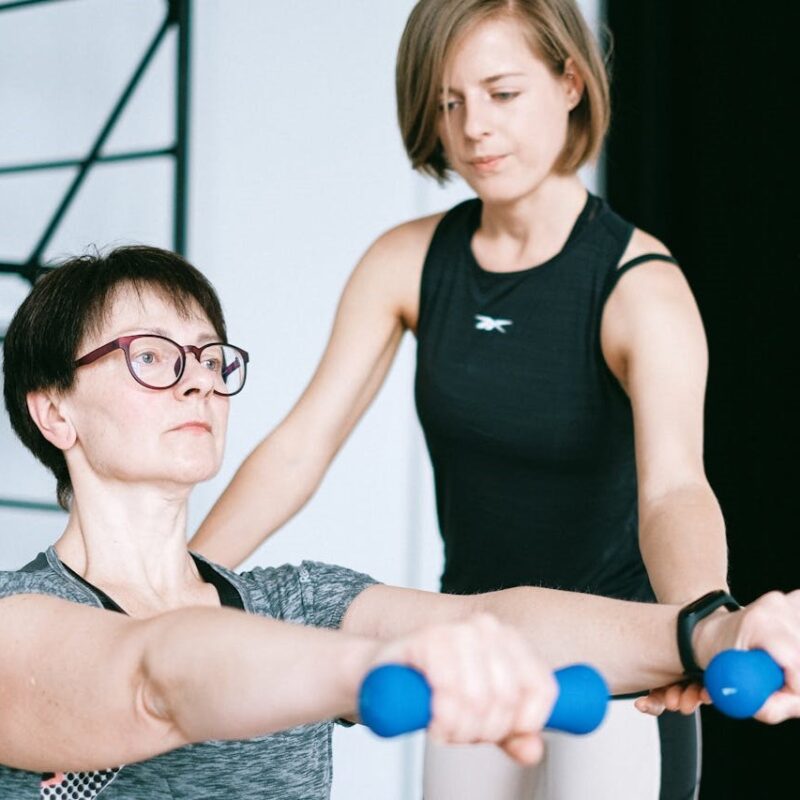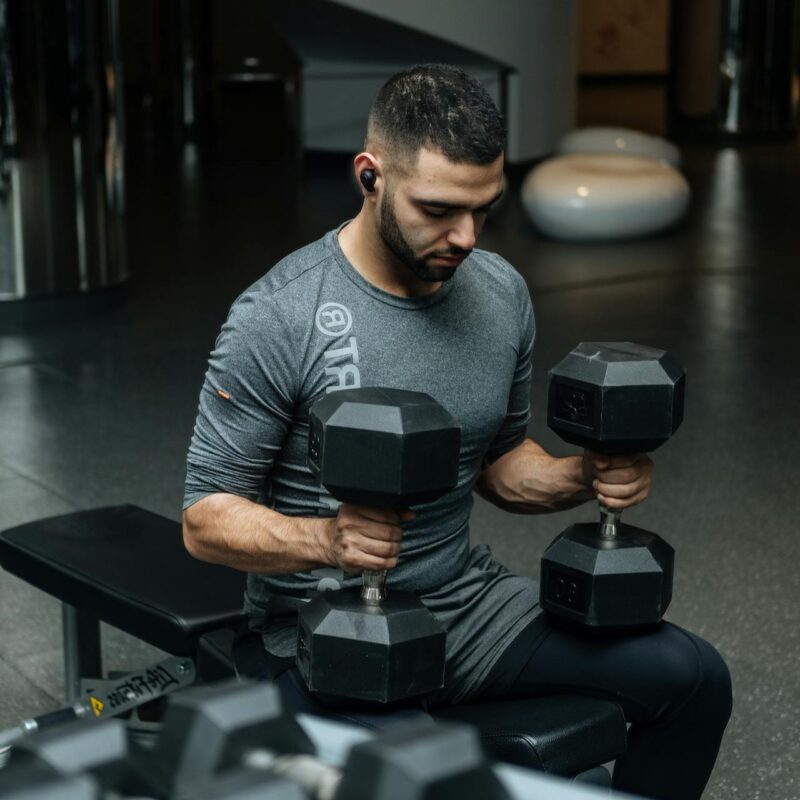
Blog
Nutrition And Fitness- Are They Really Linked?

Understanding the role of nutrition in fitness is essential to incorporate healthy habits into your routine.
It is because nutrition and healthy foods are an integral part of our daily lives, and they are linked to the major processes that provide us with energy for an active lifestyle.
However, it’s also true that combining a balanced diet with proper exercise is necessary to maintain good physical health.
Well, you must have heard all of this before. You must have also gone through all the scholarly articles stating that a balanced diet is necessary for good health, etc., etc.
We know that nutrition plays a role. But, what exactly is the role of nutrition in fitness? How does it help maintain good physical health?
Let’s find out.
What does nutrition do?

While we do understand that nutrition is important, what exactly it does is still a bit misunderstood.
Do you know what we mean by nutrition or nutrients?
If not, don’t worry. It’s pretty simple. Nutrients refer to carbohydrates, vitamins, minerals, proteins, fats, etc. Most of these are included in the food we eat.
But, what is the right amount of all these nutrients? In what quantity do we need each of these? What are the specific advantages related to each of these nutrients that make them so necessary?
Let’s find out all the answers by discussing each of them in detail.
Carbohydrates
Carbohydrates are found in foods like whole wheat, and they are considered the main energy source. Apart from energy production, they are also useful for energy storage, providing energy to the body when needed. Thus, we can say that carbohydrate is the main driver for energy needed for physical exercise.
Fats
Due to the negative perception of fats, we usually include them in small amounts in our diet. However, they are still important to absorb the fat-soluble vitamins like vitamins A, D, and E.
Apart from this, fats also provide energy, which makes them essential for workouts.
Protein
Although protein is the last resort for the body to generate energy, it is still important in providing adequate nutrition. Protein plays an important role in repairing muscles, and its ability to build muscles has made it famous among gym-goers.
In fact, most fitness enthusiasts who cannot take enough protein in their diet tend to opt for high-quality protein powders to fulfill their nutritional requirements.
Water
Water is an essential part of our lives. Instead of relying on cold drinks and sodas, you should consume fresh water to stay physically active.
The lack of water leads to dehydration, which also causes less energy and other health issues. Especially when you’re exercising, you sweat. So, drinking enough water is necessary to prevent dehydration.
How does nutrition help with fitness?

While we have discussed the important vitamins and minerals, it’s also good to consider what benefits all these can bring altogether. After all, the food we eat is a combination of most of them.
Let’s find out the role of nutrition in fitness and the benefits as well.
1. Muscle recovery and growth
If you’re a gym enthusiast, you probably know that muscles need time to repair after a workout. In such cases, people often tend to rely on protein powders. The benefits of protein powders go beyond just repairing muscles. They also provide energy and help build muscle mass.
Thus, including the right amount of protein and other nutrients in your diet is essential for post-workout muscle recovery and growth.
2. Provides energy for high-intensity workout
While exercising is a good option for physical fitness, muscle-building workouts like cardio can put your muscles under threat, especially if you’re not combining it with adequate nutrition.
We already know that being deprived of food takes away energy, and we don’t feel physically and mentally active and focused.
Thus, it’s important to include carbohydrates, protein, fats, and other vitamins and minerals in your diet. This will give you the required amount of energy.
However, it’s still important to monitor the right amount of these vitamins and minerals. Due to the difference in activity levels, the right amount for individuals will vary. Staying specific and concise to your own requirements is necessary to get the right nutrition.
3. Weight management
Have you heard someone say that eating less will make you lose weight?
Well, an article states that it’s a myth that less food means fewer calories, which can help you lose weight. Instead, eating less can lead to more fat in the body due to the fact that it slows down the metabolism.
While it’s also true that eating more can lead to weight gain, that often happens when you include unhealthy food in your diet without proper exercise.
So, a great idea here is to include healthy meals in your diet, along with proper exercise. This will help you maintain your weight, instead of making you skinny or fat.
When you’re eating the right food that gets consumed by the body, you get enough energy to exercise.
Take-away message
With the rising trend of relying on junk food, the emphasis on healthy food intake is gaining more importance.
While nutrition is generally necessary for daily life, it becomes more important when you’re doing exercise and extreme workouts. Your body needs energy to exercise, and this energy comes with consuming the right food.
So, make sure you include healthy food choices in your diet, which include carbohydrates, proteins, vitamins, minerals, etc. To get an extra energy boost, you can opt for protein shakes. However, it’s still a good idea to rely on natural protein sources first.












